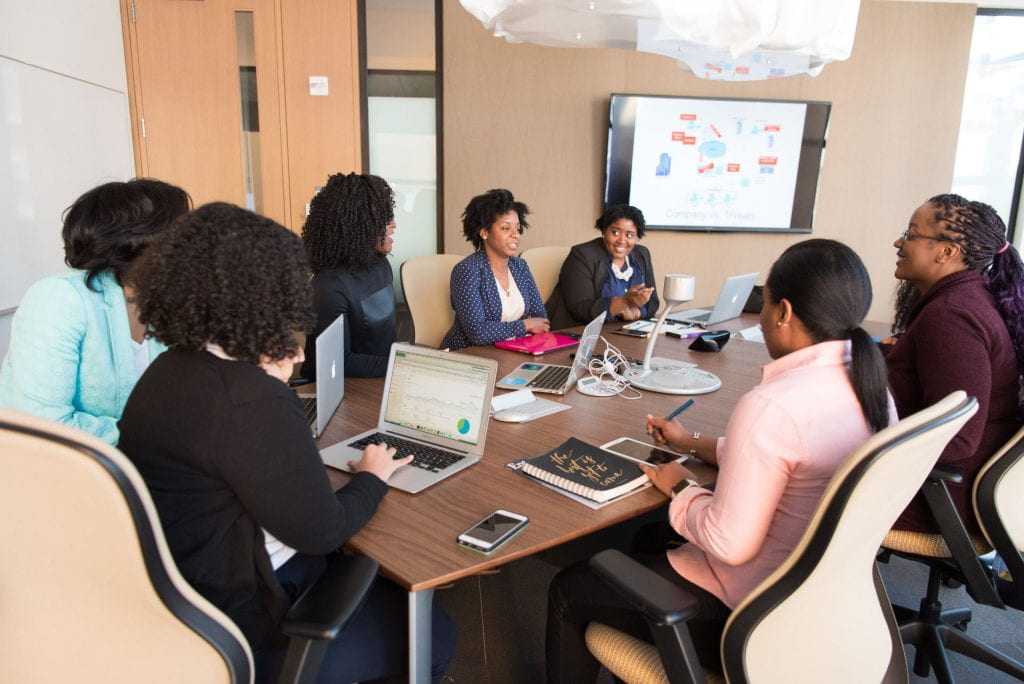
By Mike Lehman
Working effectively as a team is an essential part of collaboration, especially in an educational environment. Group dynamics are often not about the individuals in the group but rather more about how team members interact and contribute. Effective team dynamics can create a sense of belonging and community among students, faculty, and staff. This team cohesion fosters a positive and supportive environment where everyone can fully participate and feel valued.
Georgia Tech’s Effective Team Dynamics Initiative (ETDI) focuses on how research teams effectively reach their outcomes through collective contributions. By creating a supportive learning community focused on strengths-based collaboration, ETDI’s work has impacted over 7,200 undergraduate students, 800 graduate students, and 1,600 faculty and staff. In collaboration with the Center for Teaching and Learning at GT, ETDI has developed a curriculum at Georgie Tech. Additionally, our innovative program has been brought to other institutions, including the University of Texas San Antonio, the University of Wisconsin-Madison, Sagrado University Corazon, the University of Georgia, and the Okinawa Institute of Science and Technology. ETDI facilitators have also worked closely with regional academic institutions, including Fort Valley State University and Gordon State College.
This article reviews ETDI’s approach to strengths-based collaboration and educates faculty and administrators about strategies they can use in any setting. We’ll also discuss how you can bring ETD to your campus to build stronger collaborations.
What is the Importance of Effective Team Dynamics?
As we have discussed in previous posts, understanding effective team dynamics can be broken down into three questions that raise self-awareness by focusing on strengths to better understand how you work with others:
- Who Am I? Identify your unique skills, interests, and approaches to problems. This question allows you to understand yourself, and in turn, understand others better.
- How Do I Team? Recognize the interests and skills of your team. This step helps you to bring your strengths to the team.
- How Do We Team? Consider how your group can work interdependently. This process enables each team member to effectively use their individual strengths and abilities.
Addressing these questions establishes a strong foundation for effective teaming and collaborative work. Knowing how a team works increases engagement among members and leads to more productive collaborations. By creating a collaborative environment at the start, your team can develop a broader perspective on approaching projects.
How to Improve Teamwork and Collaboration
Improving team dynamics and collaborative work benefits students, faculty, and staff. Communication is a key component of collaborative work. Teams can use this essential skill to resolve conflicts and define roles and responsibilities from ideation to project completion.
- Focus on Communication: Effective teams establish an environment based on open and honest communication. Team members should be encouraged to share their ideas and concerns.
- Define Roles and Responsibilities: Communicate the roles and responsibilities of group members, considering both smaller tasks and long-term goals. Once each group member knows their responsibilities, collaboration will be more effective.
- Resolve Conflict: Disagreements will happen, but it is important to address them early. Create guidelines to resolve group conflict at the onset of the project.
Focusing on these primary aspects of effective team dynamics can create an environment conducive to collaboration in a remote setting or in interdisciplinary work.
Using the CliftonStrengths to Improve Teamwork
Georgia Tech’s Effective Team Dynamics Initiative provides resources and training to help students and other community members navigate team and group challenges. Specifically, students need help creating and sustaining a positive team environment. Likewise, faculty members want to provide positive learning environments and experiences for their students.
ETDI uses the Gallup CliftonStrengths Assessment to teach students, faculty, and staff practical methods to improve team dynamics. Following the assessment, participants receive a comprehensive report that reveals the five most important CliftfonStrengths themes for the individual. These strengths provide a roadmap to apply your strengths and unique traits to everyday activities and group projects.
By starting with strengths, effective teams dynamics can be further developed with group dynamics activities. One popular and effective team activity is “claiming your strengths.” This exercise has participants develop a common language to discuss skills and strengths in a group, understand different types of contributions, and build communication strategies.
In this activity, participants complete the CliftonStrengths assessment and highlight their strengths. Then, individuals are put into teams to discuss how their own strengths can benefit the team. This process helps participants to understand how their strengths complement other team members’ strengths.
How ETDI Can Help Your Campus
Creating a positive team culture and effective team dynamics is a process. The first step to effective team dynamics is creating an environment emphasizing collaboration through open communication lines. Once team members understand how to apply their strengths to the team, cooperation follows with clearly defined roles and responsibilities.
Georgie Tech’s ETDI facilitators are experts in guiding teams in group projects and leadership development. Recently, Dr. Renita Washington, the Academic Advising Manager for Georgia Tech’s School of Materials Science and Engineering, traveled to Gordon State College to lead a workshop on using strength-based language to navigate challenging team dynamics. She used interactive activities to help deans, chairs, and classroom leaders understand their strengths to help them become better leaders. Part of her task-based sessions include having participants discuss past sources of conflict and brainstorm actionable items to avoid future problems.
Likewise, Dr. Stephanie Merrick, an ETDI facilitator and coach, brought her passion for cultivating excellence in individuals and teams to Fort Valley State University, an HBCU in the University of Georgia. Merrick brought a personalized and interactive workshop to students that focused on team development and leadership and provided exercises based on their CliftonStrengths assessments.
ETDI offers curriculum sets for undergraduate and graduate students, but we also work directly with campus leaders at Georgia Tech and other universities. Please contact us to learn how ETDI can assist you in implementing strength-based team building.

Leave a Reply